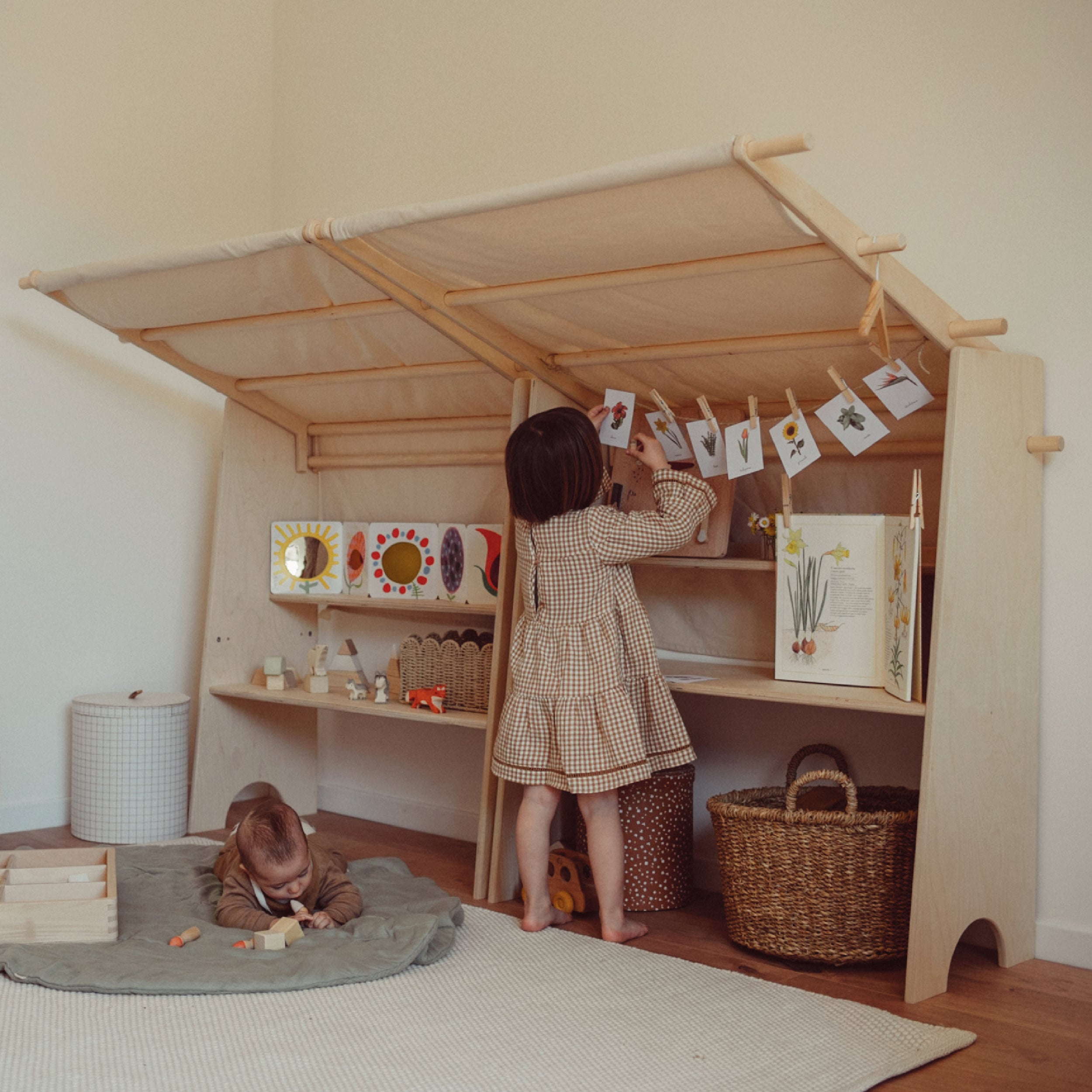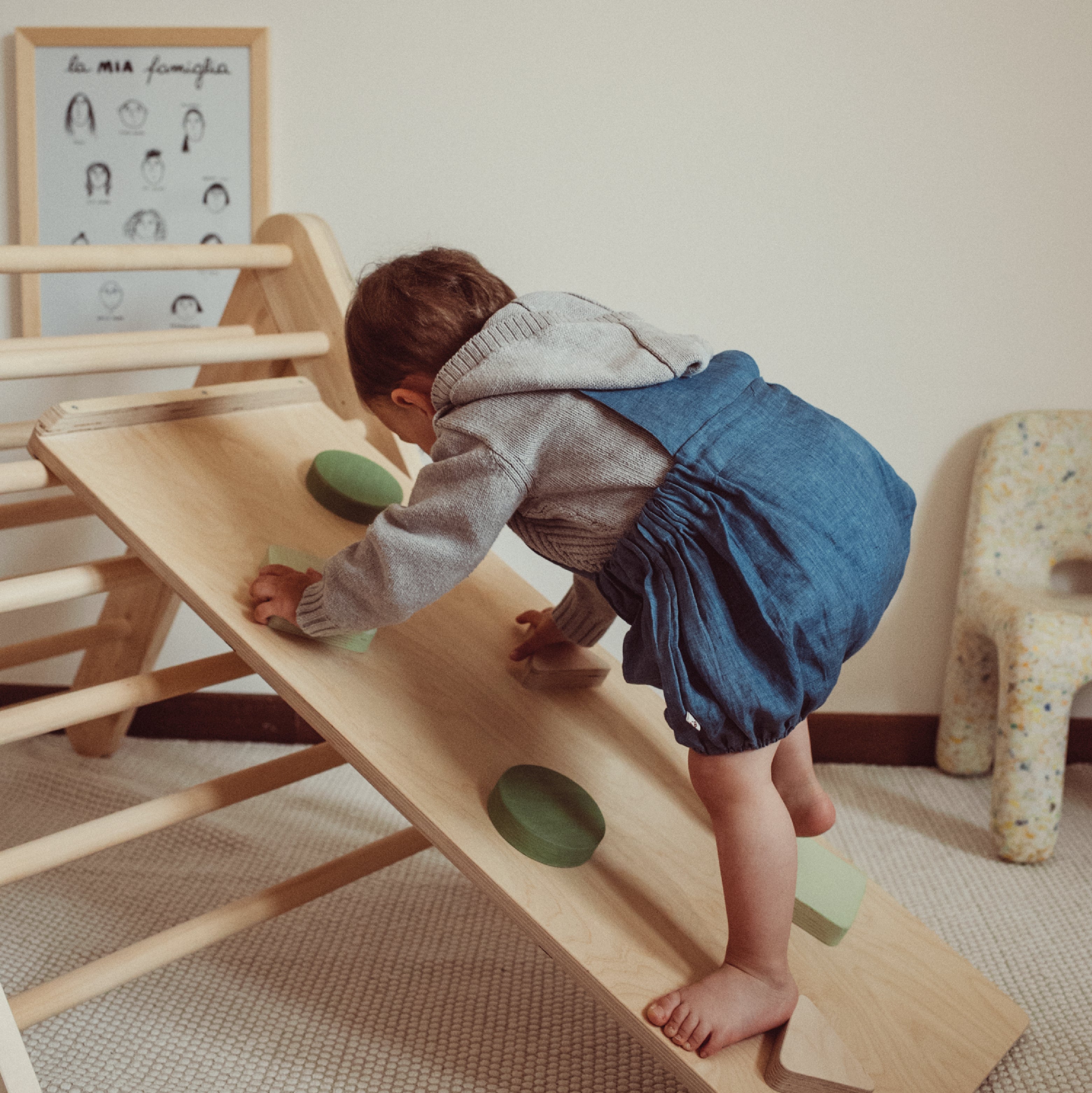Article: What makes simplicity special?

What makes simplicity special?
Simplicity makes messages and ideas clearer and easier to understand.
This is essential in a complex world where the overabundance of information and stimuli can easily confuse or overwhelm our children. An idea expressed simply is easier to assimilate and remember.
A simple and uncluttered space reduces visual and auditory distractions, allowing children to concentrate better and encourage creative play. An environment free from excessive stimulation facilitates learning and the ability to focus on one thing at a time.
Fiore Bookcase , Child-friendly bookcase that allows the rotation of books, displaying some titles frontally while still leaving all the titles available. The design is simple to avoid distractions and also allows for storage of toys.
2. The space becomes a blank sheet.
Try drawing a sheet of paper and handing it to your daughter or son, what will the result be? Instead, try taking a blank sheet of paper, tearing it up and obtaining different shapes. It will always be a blank sheet of paper but it will contain a stimulus to creativity and your children will surely see something unexpected in those shapes. The same goes for the spaces in which we live. Simple, well-structured furniture that is not saturated with stimuli triggers creative processes that will complete it.

Baita , A shelf whose shape is studied by drawing inspiration from Steinerian pedagogy. Two shelves adjustable in height and a roof that defines its boundaries. Baita follows the imagination of children, a kitchen, a workbench, a bookcase, a shelf for toys, a stall, a wardrobe... the possibilities are endless.
3. Security
Childhood, more than any other age, represents the tension between two ever-present but opposing human impulses: curiosity, the desire to explore without limits and without inhibitions and the desire to feel safe in the protective sphere of close relationships. A simple, predictable space but at the same time rich in motor stimuli helps the child in his need for discovery and containment.

Moon,
4. Overstimulation
Too many objects, bright colors and decorations can overload children's senses, causing overstimulation and fatigue, even visual. A simple space helps reduce this risk, creating a more balanced and serene environment. Simple spaces allow children to easily alternate moments of active play with moments of rest and relaxation, essential for a healthy balance between physical activity and recovery. This could be favored by corners that children know are dedicated to them and where they can "take refuge" and be alone.
5.A place for everything
We all know how much chaos a baby can create. The secret to keeping everything in order? There is none. There are small strategies to speed up the tidying up process. In a simple and well-organized space where each game has a defined place, children can find and put away their toys and materials independently. This promotes independence and responsibility, teaching them to take care of their spaces and objects.


